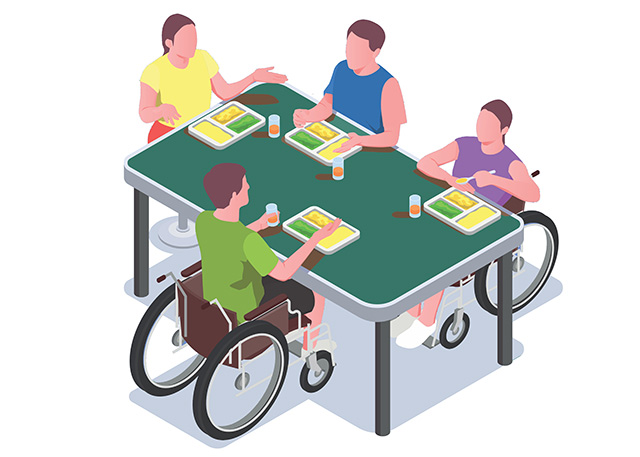Every elite athlete has unique challenges and ultimate goals that they want to achieve, and Paralympic athletes are no different. In fact, they often have so many more hurdles to jump over.
Many of the challenges that the athletes will face are nutritional, and just like with able-bodied Olympic athletes, there is quite a lot a dietitian or nutritionist needs to consider.
Above and beyond the typical sports nutrition considerations for athletes, with para-athletes, a dietitian needs to consider the nature of each individual's disability and look at what extra challenges they face.
 disabled athletes having a meal
disabled athletes having a meal Just some of the considerations a sports dietitian need to make when dealing with disabled athletes are:
- Medical conditions and medications may affect the absorption of food and nutrients, and therefore micronutrient and macronutrient intake.
- Lack of sweating mechanisms in paraplegics can alter hydration needs.
- Different energy consumption when in a wheelchair.
- Less body surface and muscle mass with amputees can alter temperature regulation and hydration status.
- Body composition assessment and goals may need to be adapted for each individual.
- Practical issues like food accessibility, kitchen adaptations and cooking skills.
Related Pages
- Sports Nutrition for Specific Groups
- Eat like an Olympic athlete — the diets of athletes at past Olympic Games
- Fuel for Exercise: nutritional considerations for athetes before, during and after exercise.
- About the Paralympic Games


 Upcoming Events
Upcoming Events